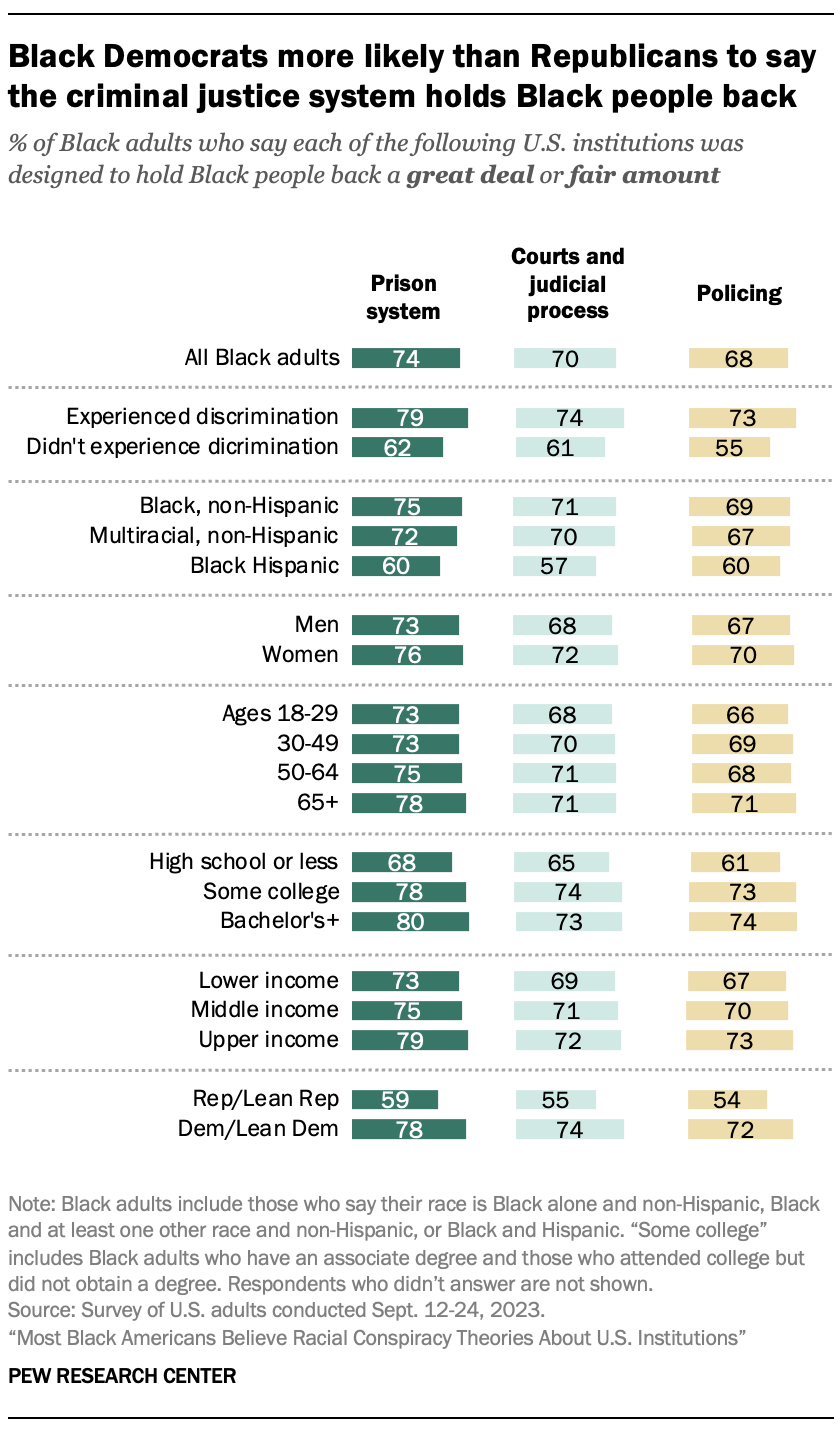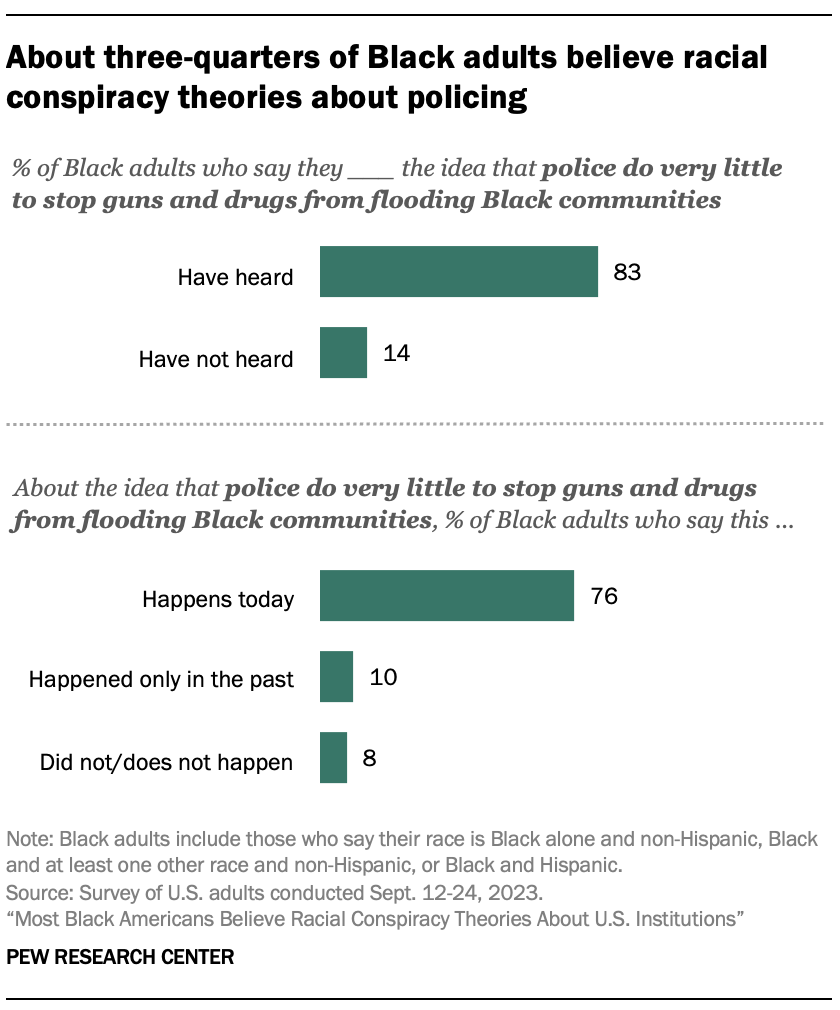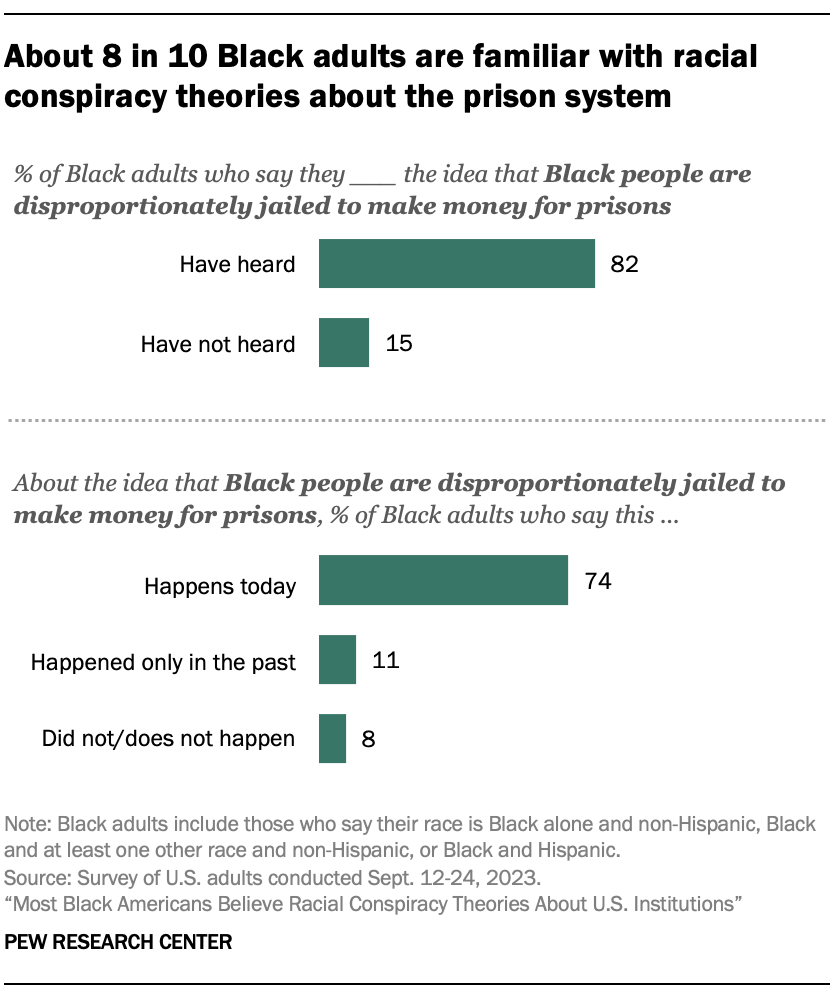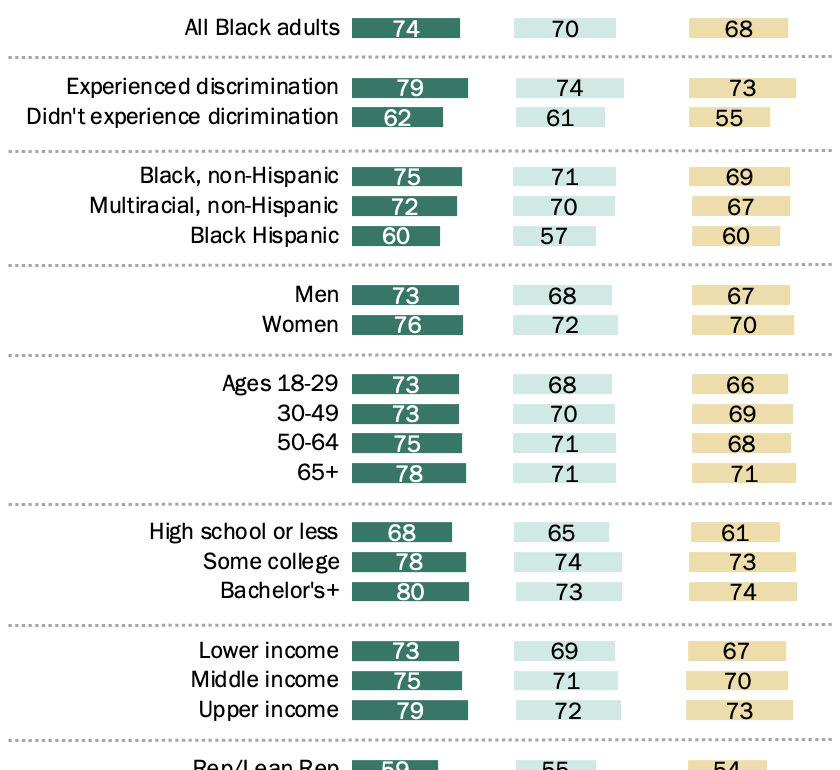Racial conspiracy theories about the criminal justice system have their roots in key events in the 20th century.
What is a ‘racial conspiracy theory’?
In this report, the phrase “racial conspiracy theories” refers to the suspicions that Black adults might have about the actions of U.S. institutions based on their personal and collective historical experiences with racial discrimination.
In the convict-leasing and chain gang systems of the early 1900s, Black men were forced to build roads, bridges and ditches as part of their incarceration. This new infrastructure improved the business prospects of rural planters throughout the South.
And in the 1990s, the CIA released a report about its role in the inner-city cocaine epidemic of the 1980s and early ’90s. While the agency denied that it was directly involved, it admitted that addressing drug activity in their Central American operations was not among its priorities.
These events provide some context for Black Americans’ beliefs in several racial conspiracy theories.
Black Americans believe the criminal justice system was designed to hold them back

Roughly seven-in-ten Black Americans believe in racial conspiracy theories about the criminal justice system. About three-quarters (74%) say the prison system was designed to hold Black people back a great deal or a fair amount. Similar shares say the same about the courts and judicial process (70%) and policing (68%). While many Black adults say the criminal justice system was designed to hold Black people back, there are some group differences.
By discrimination experience and ethnicity
Racial discrimination continues to be a significant factor in how Black Americans assess their progress, or lack of it. Those who have experienced racial discrimination are more likely than those who haven’t to say the prison system (79% vs. 62%), judicial process (74% vs. 61%) and policing (73% vs. 55%) each was designed to hold Black people back.
When it comes to ethnicity, the majority of non-Hispanic (75%) and multiracial (72%) Black adults say the prison system and the judicial process were designed to hold Black people back. Fewer Hispanic Black adults say the same (60%).
By education, family income and party
Black Americans’ views also differ by education. About three-quarters or more of Black adults who have been to college, regardless of their degree status, say the prison system, the judicial process and policing were designed to hold Black people back. Those with a high school diploma or less education are less likely to agree. Likewise, Black adults with high family incomes are more likely than those with lower family incomes to say the same about prisons and policing.
Political affiliation also plays a role in what Black adults believe about the criminal justice system. Black Democrats are more likely than Black Republicans, including those who lean to each party, to say the prison system (78% vs. 59%), judicial process (74% vs. 55%) and policing (72% vs. 54%) were intentionally designed to hold Black people back, though majorities of both groups say the systems were designed this way.
Familiarity with and belief in racial conspiracy theories about policing and prisons
In addition to believing the criminal justice system was designed to hold Black people back, most Black Americans are also familiar with racial conspiracy theories about the criminal justice system.

Some 83% of Black adults say they have heard about the idea that police do very little to prevent guns and drugs from flooding Black communities. And 82% have heard the idea that Black people are incarcerated more than White people to create profit for prisons. Only about 15% of Black Americans say they are unfamiliar with these narratives.
Belief in racial conspiracy theories about policing in Black communities
Aside from being familiar with these ideas, most Black Americans say racial conspiracy theories about policing are true and happening today. About three-quarters of Black adults say the police’s failure to prevent the flow of guns and drugs in Black communities is something that happens today (76%). By comparison, 10% say this happened in the past but no longer happens today, and 8% say this has never happened.
By discrimination experience and community type

Black adults who have experienced racial discrimination (80%) are more likely than those who haven’t (68%) to say the failure of police to prevent the flow of guns and drugs is something that happens today. And Black adults who live in urban areas (80%) are slightly more likely than those in suburbs (76%) or rural areas (72%) to say this.
By education and party
Black adults also differ on this question by education and political party. Those with a bachelor’s degree (78%) are more likely than those with a high school diploma or less (72%) to say police are failing to prevent the flow of guns and drugs into Black communities. The share of Black Democrats (79%) who believe this is higher than the share of Black Republicans (66%).
Belief in racial conspiracy theories about prisons and profits
Black Americans also say racial conspiracy theories about the prison industry are true and happening today. About three-in-four Black adults (74%) say Black people are being incarcerated more than White people so that prisons can make profits off them. Smaller shares say this happened in the past but no longer happens today (11%) or say this has never happened (8%).
Much like their beliefs about police neglect in Black communities, Black adults who have experienced discrimination and those who are Democrats are more likely than their counterparts to say Black people are used for profit in the prison industry today.
This post was originally published on this site be sure to check out more of their content.







